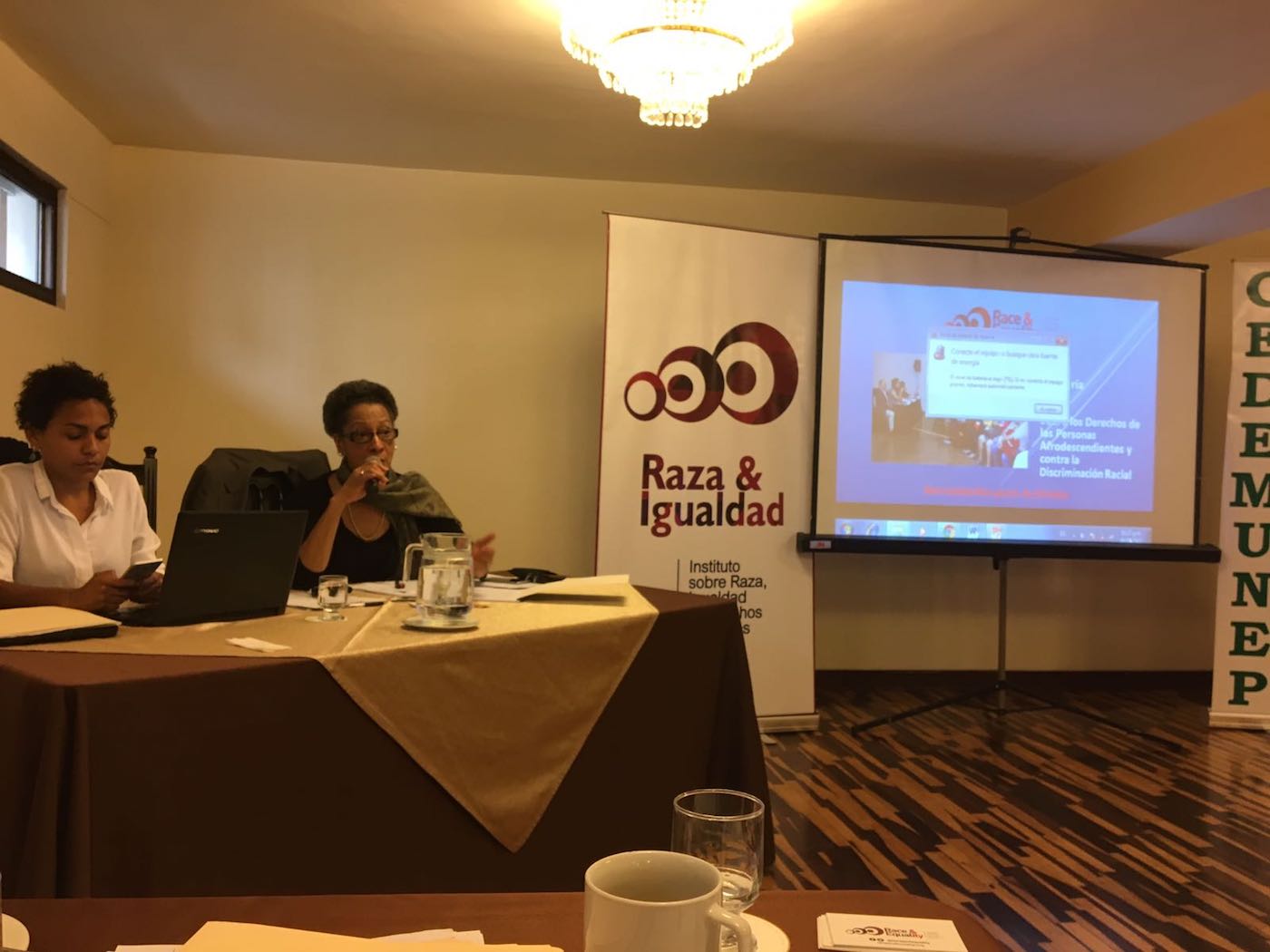Afro-Peruvian Leaders Meet with Commissioner Margarette May Macaulay of the IACHR’s Afro-descendant Rapporteurship
Washington, D.C., July 10, 2017 – On July 8 in Lima, Peru, the International Institute on Race, Equality and Human Rights, with support from our counterpart, the Centro de Desarrollo de la Mujer Negra Peruana (CEDEMUNEP), organized a private dialogue between Afro-Peruvian leaders and Commissioner Margarette May Macaulay, the Inter-American Commission on Human Rights’ (IACHR) […]

Washington, D.C., July 10, 2017 – On July 8 in Lima, Peru, the International Institute on Race, Equality and Human Rights, with support from our counterpart, the Centro de Desarrollo de la Mujer Negra Peruana (CEDEMUNEP), organized a private dialogue between Afro-Peruvian leaders and Commissioner Margarette May Macaulay, the Inter-American Commission on Human Rights’ (IACHR) Rapporteur on the Rights of Women and Rapporteur on the Rights of Persons of African Descent and Against Racial Discrimination. The Institute organized the meeting around the 163 Extraordinary Period of Sessions held by the IACHR in Lima July 3-7.
After a brief introduction to the Afro-descendant Rapporteurship and its principal functions by Elvia Duque, the Institute’s Program Officer, Commissioner Macaulay emphasized the importance of maintaining constant communication with the Rapporteurship and making use of the IACHR’s different tools to raise awareness about the reality faced by Afro-descendants and their demands.
Issues discussed during the dialogue included the upcoming census to be carried out in October 2017, the first to include the Afro-descendant variable since 1940; the role of the media in gender and children’s issues; and the situation of Afro-descendants in education and employment. Regarding the census, participants emphasized the lack of a public campaign and support from the government to promote the different self-identification categories, especially those used for the Afro-Peruvian population—work which has had to be carried out by Afro-Peruvian organizations without State support. Organizations present also expressed their apprehension regarding the roles to be assumed by survey takers during the census.
Participants explained how the media continues to promote racial stereotypes that have particularly negative effects on Afro-Peruvian children and youth. In addition, they explained how a lack of access to education—especially higher education—is a multiplying factor in the inequality and poverty suffered by Afro-Peruvians. Patricia Quispe, Councilperson from Pueblo Nuevo, told of the large number of Afro-Peruvian children who lack basic identity documents, a problem that also affects their parents and which hinders their access to education and health care.
During the meeting, Azucena Algedones spoke of the racial discrimination case she brought to the judicial system after she was unjustly fired—one instance of the pervasive discrimination that still exists in the Peruvian labor market. Ms. Algedones said she would like to have the IACHR consider her case.
The Commissioner took attentive note of the testimony of those present, underscoring the importance of submitting detailed reports to the rapporteurships and continuing to advocate for the ratification of the Inter-American Convention against Racism, Racial Discrimination and Related Forms of Intolerance, which will be key to providing the tools necessary to combat racial discrimination and improve the lives of the Afro-Peruvian population.

